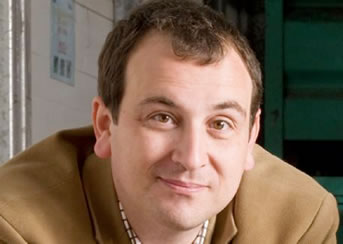
Julio Díaz is a qualified electronics engineer and the owner and CEO of SAPIENX AUTOMATION, an engineering firm that is also a KNX++ Certified Training Center and a high-tech consultancy. Díaz specialises in smart buildings, NZEB (Net Zero Energy Buildings), smart metering and smart cities.
Díaz has been a KNX Trainer (formerly EIB Trainer) since 1998. At that time, the company he was working for provided the first KNX/EIB tutors in southern Europe, and were, according to Díaz, considered somewhat ‘exotic’ as almost the only non-German speakers within the association! But things have come a long way since then, and in this exclusive interview with KNXtoday, Díaz gives his take on the new world of KNX.
Q: What trends do you see in the KNX market?
A: KNX seems to be making great strides in the Middle East and Asia, and is also making a good start in South America. While growth in the emerging economies is encouraging, there is also scope for further growth in Europe where laws are converging and facilitating the use of BACS (Building Automation and Control Systems) and BMS (Building Management Systems) solutions to obtain very low-energy buildings. The key in Europe is the releasing of funds to finance projects. So, as the economic crisis starts to lift, I am confident that we will see more growth in the European zone.
Q: What excites you at the moment and what opportunities do you see?
A: The highlight of last year was us winning the KNX International Award – Europe. Our aim is to open offices in South America and possibly in other territories. As we specialise in NETxAutomation solutions, and provide consultancy for very large KNX projects, we have collaborated with many people around the world, which has been very rewarding. The challenge is in keeping in touch with them all!
As a KNX++ certified training centre, we provide a lot of training in Spain for different manufacturers, universities etc, and we are receiving a lot of interest in our new specific training for smart buildings and smart cities involving very large KNX projects, as well as BMS, OPC and the integration of KNX with BACnet and Modbus via Ethernet/IP.
Q: What are the challenges facing KNX?
A: KNX is a very strong standard, and while it is not the whole solution, it is an important part of the mix when it comes to the whole set of installations in a building. I think it has to be prepared to work with other important standards such as BACnet, especially if KNX wants to progress in the American market. I do think however, that KNX is ready for that challenge.
Q: What do you recommend as a strategy in helping the market to develop?
A: One of the secrets of KNX’s success is the KNX Certified Training scheme, which was established more than 18 years ago. It is important to create new KNX training modules such as KNX courses that focus on large installations, management, IP integration, etc. We have to find the best way to continuously link all of the knowledge required for KNX solutions and provide it to KNX integrators and installers.
From the end-users’ point of view, KNX should not be seen as a ‘special’ technology, but as the natural evolution of the electrical installation, and indeed every installation in any type of building. We have to get the message across that KNX gives our homes and buildings ‘commonsense’ rather than ‘intelligence’.
Q: How do you keep in touch with the market?
A: I always go to the Light+Building fair in Frankfurt – the next one starts at the end of March 2014. This show is one of the best ways to keep up-to-date on new products and solutions. I also like to be kept informed continuously of the latest developments concerning KNX and other BACS and BMS solutions. As I like to say, nobody can claim to be an ‘expert’ in KNX – we will always be ‘apprentices’.
Q: Where do you see the industry being in a year’s time?
A: Focusing more and more on metering and energy efficiency, and also on new user interfaces. The more simple and effective the solutions become, the more successful we will be.
Q: What is your advice to the industry?
A: The KNX industry is good at adapting its solutions to the market’s needs. This is great, but things are changing faster and faster, so my advice is to stay alert and listen to end users as well as integrators, since the latter hold the key to adding value to a building during the design and installation phases on a building project.
Julio Díaz is the owner and CEO of SAPIENX AUTOMATION, an engineering company that specialises in BACS and BMS solutions for smart buildings, smart metering and smart cities. SAPIENX AUTOMATION is also the Solution Partner of NETxAutomation for Spain and South America.














